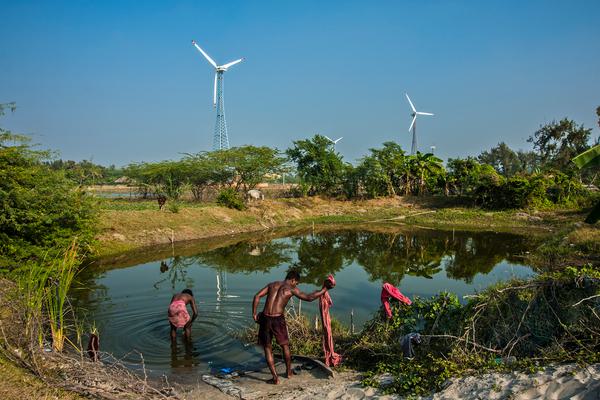Understanding the Costs of Green Conflict

The Institute for Human Rights and Business and Clifford Chance are hosting a private roundtable discussion with key industry actors to explore the value at stake when companies in the renewables sector experience conflict with local communities.
This dialogue is part of the Institute for Human Rights and Business' two year research project - The Cost of Green Conflict - exploring the value at stake when companies in the renewables sector experience conflict with local communities.
Opening remarks will be given by representatives from the Global Wind Energy Council, the European Bank for Reconstruction and Development, and the International Council for Mining and Metals.
This event is by invitation only. If you are interested in attending, please contact tokelo.shai@ihrb.org.
Event purpose
This dialogue is part of an industry engagement project exploring the value at stake when companies in the renewables sector experience conflict with local communities (“conflict” ranging from low-level tension through to situations involving a complete relationship break-down or violence).
This high level dialogue will enable constructive exchange amongst key industry actors across the renewables value chain to better understand the spectrum of costs companies incur when they experience conflict with local communities. In particular, it aims to:
- Understand the existing state of play in costing efforts across the environmental, occupational health and safety, risk, and other “ESG” areas more broadly
- Learn from individual and collective experiences of how conflict-related costs are identified, understood, and managed.
- Explore the extent and nature of the business case for improved risk management for avoiding and mitigating company-community conflict as the renewables rollout picks up pace globally.
Discussion questions
This roundtable dialogue will be highly interactive in nature. Following brief presentations from practitioners and the IHRB research team to spark reflections, the floor will be opened for facilitated discussion across a number of key questions including:
- What are the most frequent, greatest, and most overlooked types of costs to companies that arise from such conflicts?
- What methods are used or most effective for identifying, assessing, and aggregating these costs?
- Where is responsibility for managing these costs typically assigned in a wind or solar company?
- How is information about such costs used for the purposes of wider decision-making and/or incentive structures within renewables companies?
- What are the major incentives and disincentives for renewables companies to better understand such costs?
Background
Historical research into fossil fuel extraction between 2011-2014 explored the case for conflict to be considered as a means through which environmental and social risks are translated into business costs and decision making. This research found that company-community conflict at hydrocarbon extraction sites could cost a business: as much as $10,000/day during initial exploration; up to $50,000/day during advanced exploration; and as much as $ 20 million/week during operations.
Building on this historic research through in-depth interviews, empirical case analysis, and multi stakeholder dialogue, this project seeks to explore the value at stake when companies in the renewables sector experience conflict with local communities. Ultimately the project aims to answer the question: if the costs of conflict experienced by companies in the wind and solar industries were better understood, would relationships between companies and local communities receive greater priority and attention?


